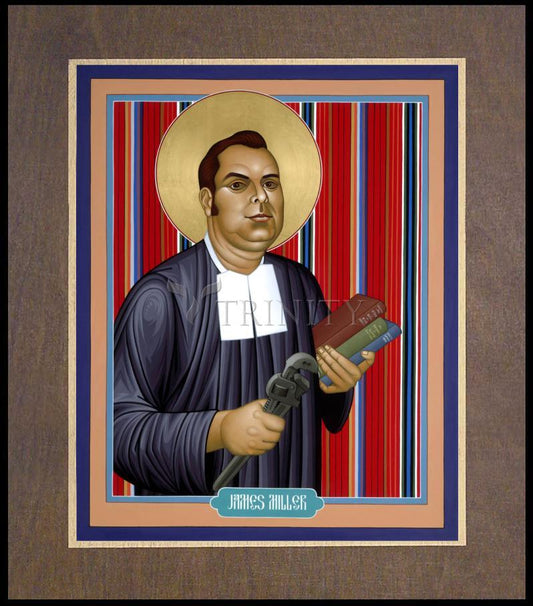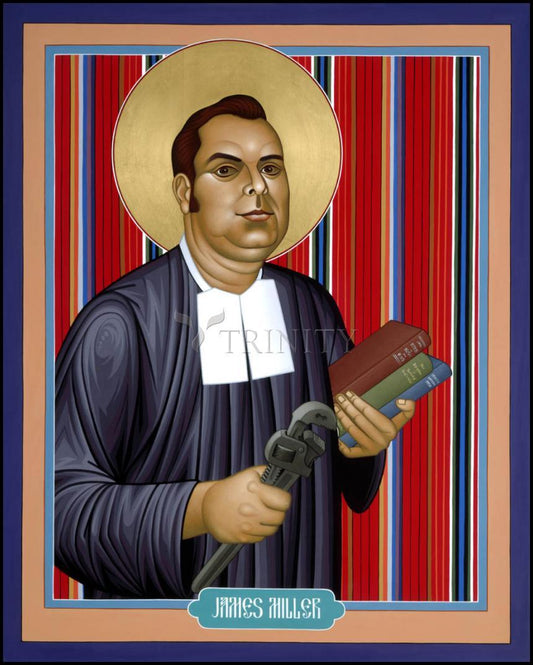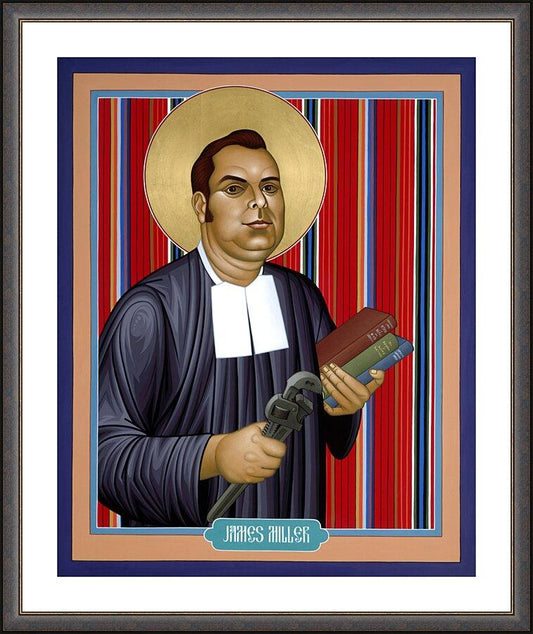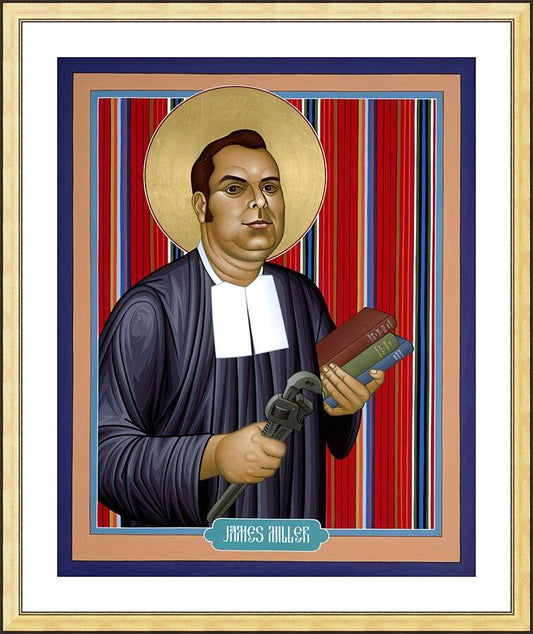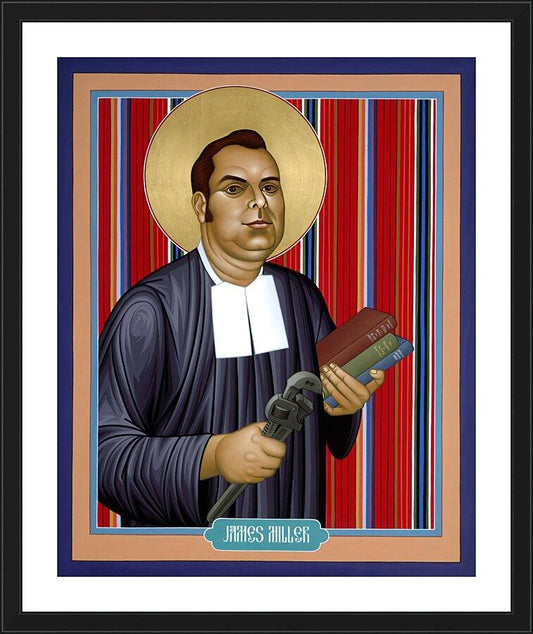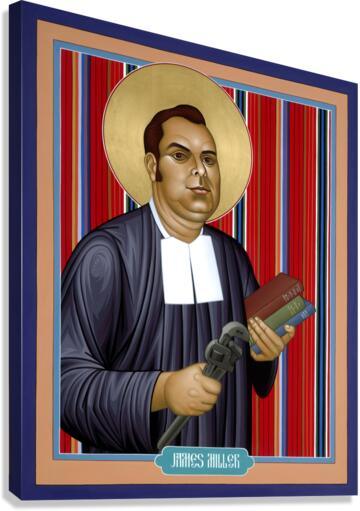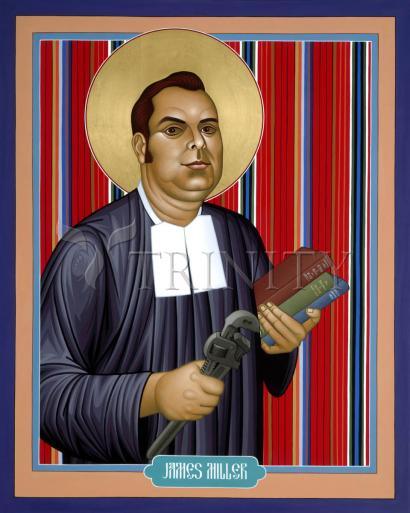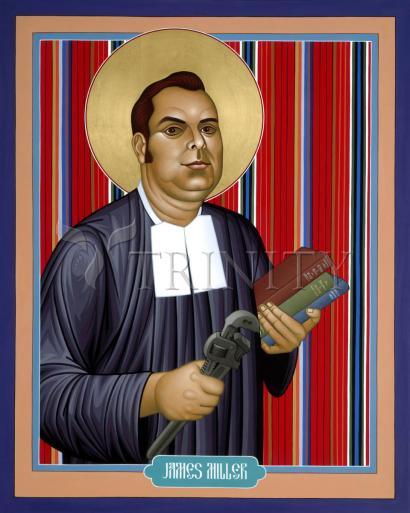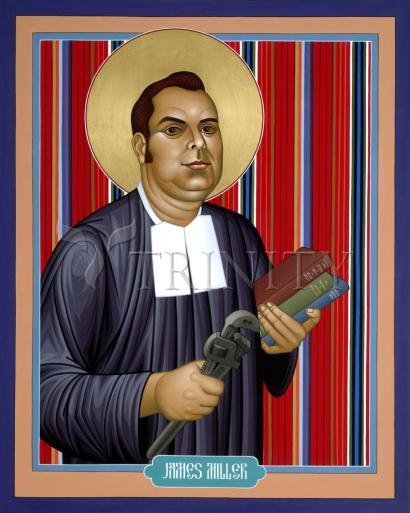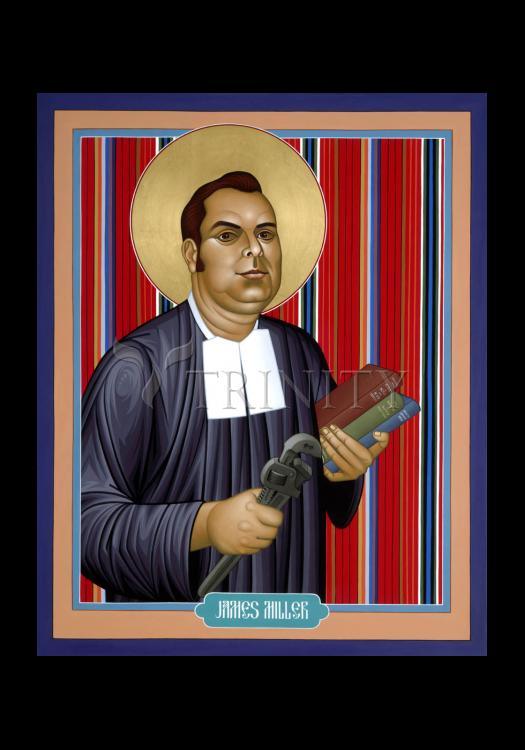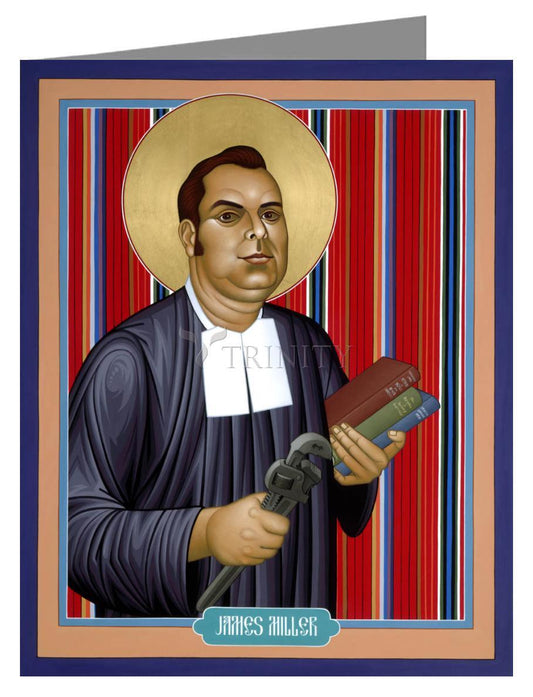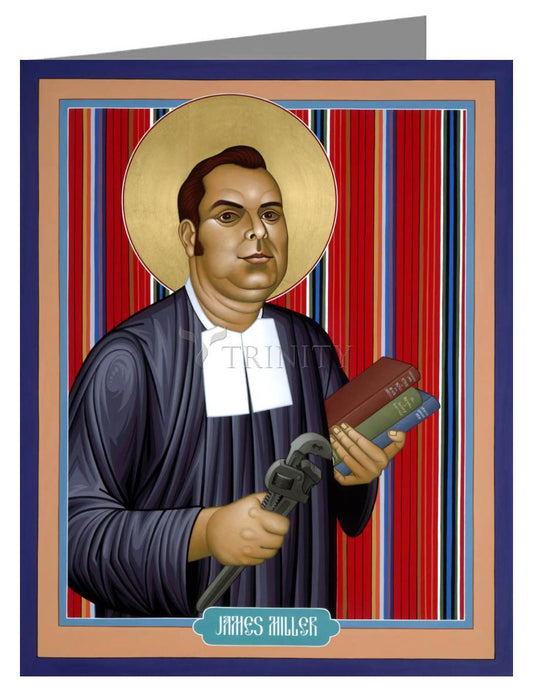On Saturday, February 13, 1982, late in the afternoon, James Arnold Miller, a Christian Brother, was preparing to patch a wall outside the Casa Indigena De La Salle in Huehuetenango, Guatemala. Suddenly, four hooded men sped up in a car. Brother "Santiago," shot seven times in the neck and chest, died instantly.
Born in 1944, James Miller grew up in the farming community of Custer, Wisconsin. During his freshman year of high school he was so impressed by the Christian Brothers who taught him, that he entered the religious community. In 1969, Brother James was sent to Bluefields, Nicaragua, where he taught in both elementary and high schools. After receiving his master's degree in Spanish from St. Mary's College in Winona, Minnesota, he returned to Nicaragua, this time to Puerto Cabezas, where Brother James helped build an industrial arts/vocational complex. In 1981, he came to the Indian Center in Huehuetenango, Guatemala.
Why was Brother James killed? He was no leftist. The answer may lie in the relations between the Brothers at the Indian Center and the Guatemalan army. The government, to meet its quota of army conscripts, often rounded up Indian boys from the streets. Even though students were exempt from military service, those from the Indian school were often impressed into the army. When that happened, a Brother would present proof to the authorities that the boy in question was a student. The military would then reluctantly release him.
Two days before the shooting of Brother James, a Mayan pupil was forced into the army. Another Christian Brother went to the authorities to obtain his release. This time the military refused to relinquish their catch. Adamant in his demands, the Brother infuriated them. The murder of Brother James was probably meant as a warning to the Brothers to cease interfering in government affairs.
"Excerpts from "Brothers Called to Sainthood"
The days are often long, but I thoroughly enjoy my work with the Indian boys. Through daily association, I have come to respect and love them all and to have a deep respect for the centuries of Mayan history and tradition that are their heritage... I always find it a joy to visit the homes of the boys from the Indian Center. The Indians form about 50% of the country's population, but they are the poor, the oppressed, the forgotten ones of Guatemala. Many of them are desperately poor, the majority are illiterate, and malnutrition and mortality are endemic...
Aware of the many difficulties and risks that we face in the future, we continue to work with faith and hope and trust in God's Providence. Please join your prayers with ours every day. Many selfish, blind, and hardened hearts must be converted to the love of Christ before a lasting solution can be found. Armed force will not solve the problems; only dialogue and mutual understanding can be viable solutions.
I am personally weary of violence, but I continue to feel a strong commitment to the suffering poor of Central America. "God's ways are not man's ways," says the Bible. God knows why He continued to call me to Guatemala, when some friends and relatives encouraged me to pull out for my own comfort and safety. I have been a Christian Brother for nearly 20 years now, and my commitment to my vocation grows steadily stronger in the context of my work in Central America. I pray to God for the grace and strength to serve Him faithfully by my presence among the poor and oppressed of Guatemala. I place my life in His Providence; I place my trust in Him.
"Excerpts from Brother James Miller's personal writings



